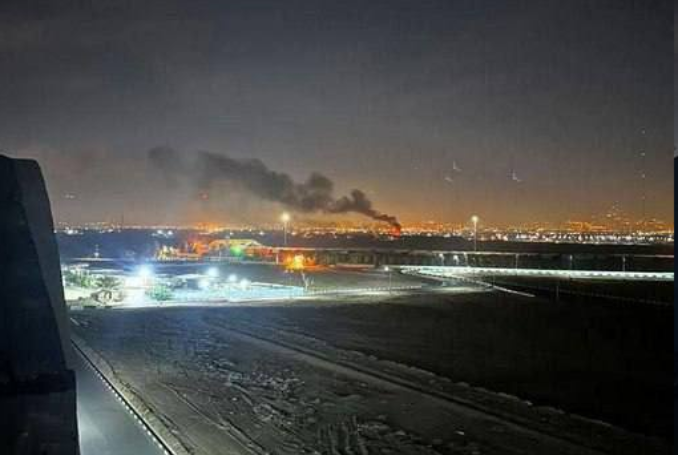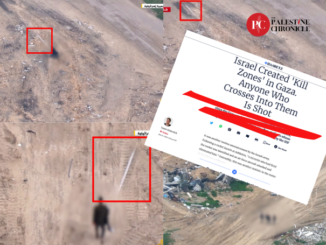
According to a statement by the Iranian army, the Iranian air defense system managed to counter these acts of aggression, preventing significant impact.
Iran’s air defense forces said that Israeli attacks targeted several sites across the Tehran, Khuzestan, and Ilam provinces early on Saturday, noting that these assaults were successfully intercepted and neutralized.
In a statement, Iran’s air defense authorities underscored that despite prior warnings issued by Islamic Republic officials to Israel against initiating “any adventurous action,” the attacks reportedly targeted several military centers in Tehran, Khuzestan, and Ilam, escalating regional tensions.
The Iranian air defense system managed to counter these acts of aggression, preventing significant impact, according to the statement.
However, the statement also mentioned that limited damage occurred in some areas, with further investigation ongoing to assess the full extent.
The Iranian army announced on Saturday morning the killing of two soldiers while confronting the Israeli attack, without any reports of civilian deaths, and the extent of material losses at the targeted military sites is not yet clear.
AVIGDOR LIEBERMAN: The Israeli government has been content with intimidating Iran and with a policy of public relations and buying silence instead of subjugating it. pic.twitter.com/PzFy3fZ1q0
— The Palestine Chronicle (@PalestineChron) October 26, 2024
Loud Noises
Iranian security sources reported early on Saturday that loud noises heard by residents near Tehran were triggered by the activation of air defense systems responding to the Israeli attack.
Iran’s official IRNA news agency corroborated this, reporting that some of these sounds in the capital were caused by “defense activity in Tehran.”
IRNA noted that no incidents were recorded that required emergency response, and operations at both Mehrabad International Airport and Imam Khomeini International Airport remained unaffected, with activities continuing as “normal.”
Additionally, IRNA reported that Iranian air defenses had “successfully shot down adversarial targets in the airspace around Tehran province,” with footage shared online capturing what appeared to be interceptive actions over the capital.
Tasnim News Agency also confirmed on Saturday morning that the situation at both major airports was stable and that no missile strikes or impacts had affected Islamic Revolution Guards Corps (IRGC) military facilities located in the west and southwest of Tehran.
Right to Respond
According to informed sources, cited by Tasnim, the sounds heard by residents were connected to air defense maneuvers that successfully engaged Israeli military actions in three targeted areas surrounding Tehran.
Informed sources further indicated that Iran remains ready to counter any future acts of aggression, reiterating previous warnings.
"Unlike Israel, Iran relies on no other countries for military support."
Press TV’s Gisoo Misha Ahmadi reports that analysts believe Israel is not in a position to launch a full-scale war against Iran. pic.twitter.com/LogsaKX89I
— Press TV ? (@PressTV) October 26, 2024
They emphasized that “Iran reserves its right to respond to any form of aggression, and there is no doubt that Israel will receive a proportional reaction to any action taken.”
After weeks of anticipation, Israel carried out its attack on Iran at dawn on Saturday, which it said was in response to the attack launched by Iran on it in early October, which led to explosions in 3 Iranian cities.
However, Iran confirmed that it had confronted the attack and reserved the right to respond, and said that the attack had caused damage that it described as limited. So what do we know about the attack so far?
‘Small Flying Objects’
Israeli officials announced that their military launched strikes on 20 sites across Iran, carried out in three separate waves. However, according to Tasnim News Agency, informed sources in Iran disputed this figure, suggesting that the actual number of targets was significantly lower.
Israeli military spokesperson Daniel Hagari claimed that these strikes focused on dismantling Iran’s surface-to-air and surface-to-surface missile systems, as well as degrading its air defense capabilities. ABC News cited an Israeli source who specified that the attacks targeted locations storing missiles, drones, and weapons-production facilities.
For its part, Tasnim News denied that any Islamic Revolutionary Guard Corps (IRGC) sites in Tehran were affected.
"What happened last night had no impact on our daily lives."
Reporting from Valiasr Square in Tehran, Saman Kojouri speaks with a resident, asking her perspective on the recent Israeli-claimed attacks on Iranian military targets. pic.twitter.com/ugya64jaEu
— Press TV ? (@PressTV) October 26, 2024
Additionally, Israeli authorities claimed that more than 100 aircraft, including F-35 fighter jets and drones, participated in the operation and returned safely to Tel Aviv. However, Iranian media, citing local sources, stated that the operation involved “small flying objects” which were intercepted before inflicting significant damage. In addition, Tasnim reported that the strikes were carried out from beyond Iranian borders.
Israeli sources also said that the operation began with an assault on Iranian air defense positions, steering clear of the country’s energy infrastructure. An Iranian source claimed, however, that Israel was overstating the impact of its actions, which they described as limited.
Al-Jazeera’s correspondent in Tehran confirmed normal activity in the affected cities, noting that business operations and road traffic continued uninterrupted. Both Mehrabad and Imam Khomeini airports were unaffected, with flights resuming by 9:00 a.m. local time.
A Message to Iran?
The American news website Axios reported that Israel sent Iran a warning message on Friday, shortly before launching the airstrikes.
This message, reportedly conveyed through multiple diplomatic channels, including Dutch Foreign Minister Casper Veldkamp, urged restraint and highlighted the need to prevent further escalation. Minister Veldkamp had posted a statement on X (formerly Twitter) following his conversation with the Iranian foreign minister, urging all sides to work towards de-escalation.
Axios reports Israel conveyed to Iran what it was going to attack and what it wasn't going to attack and asked it not to retaliate.
Looks like Israel does not have the stomach for a large scale war with Iran. pic.twitter.com/OzeswDzs60
— sqar ?? (@sqar_89) October 26, 2024
Iranian officials have not yet responded to these claims. However, the Nour News site, which is close to Iran’s National Security Council, stated that Tehran’s approach to Israeli aggression is to respond at a time and pace it deems appropriate.
After concluding the operation, Israel’s Channel 12 reported that Israeli defense systems had been elevated to high alert, expecting a potential Iranian response.
(PC, Agencies)








